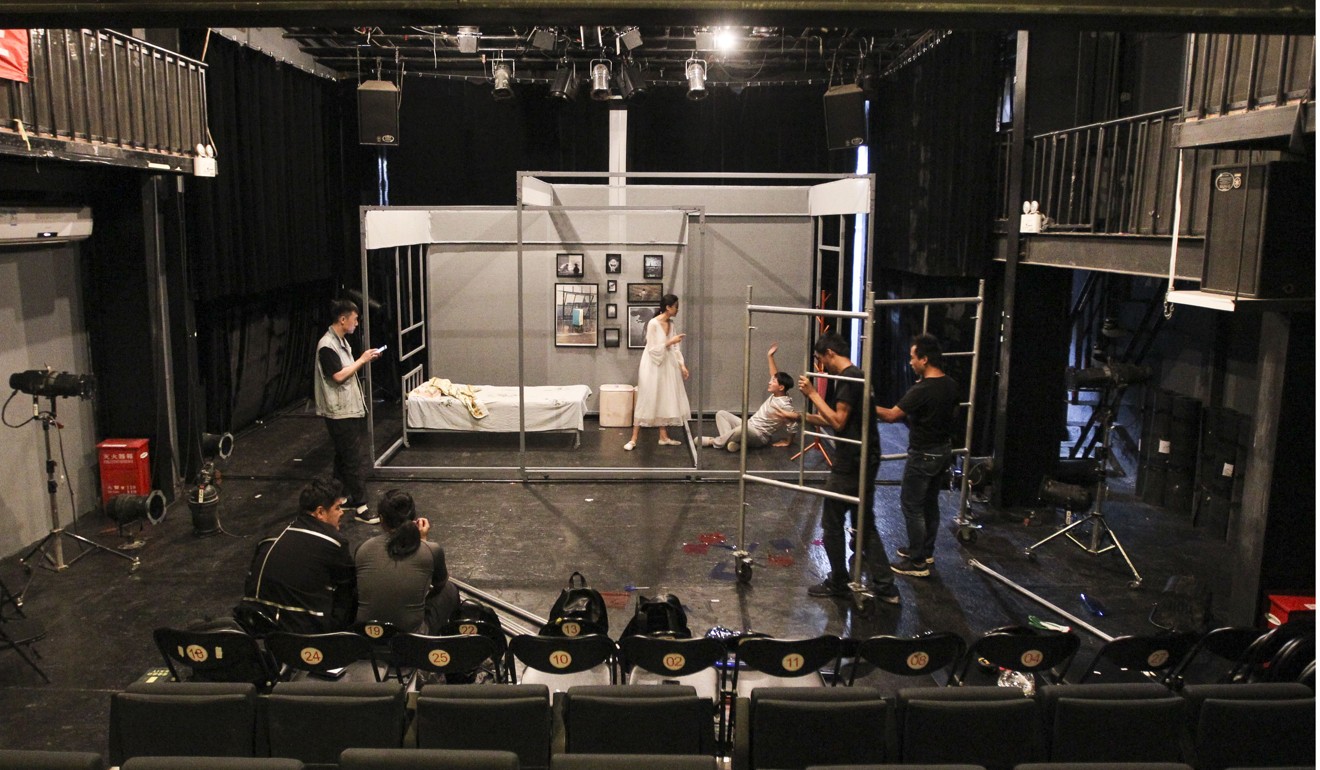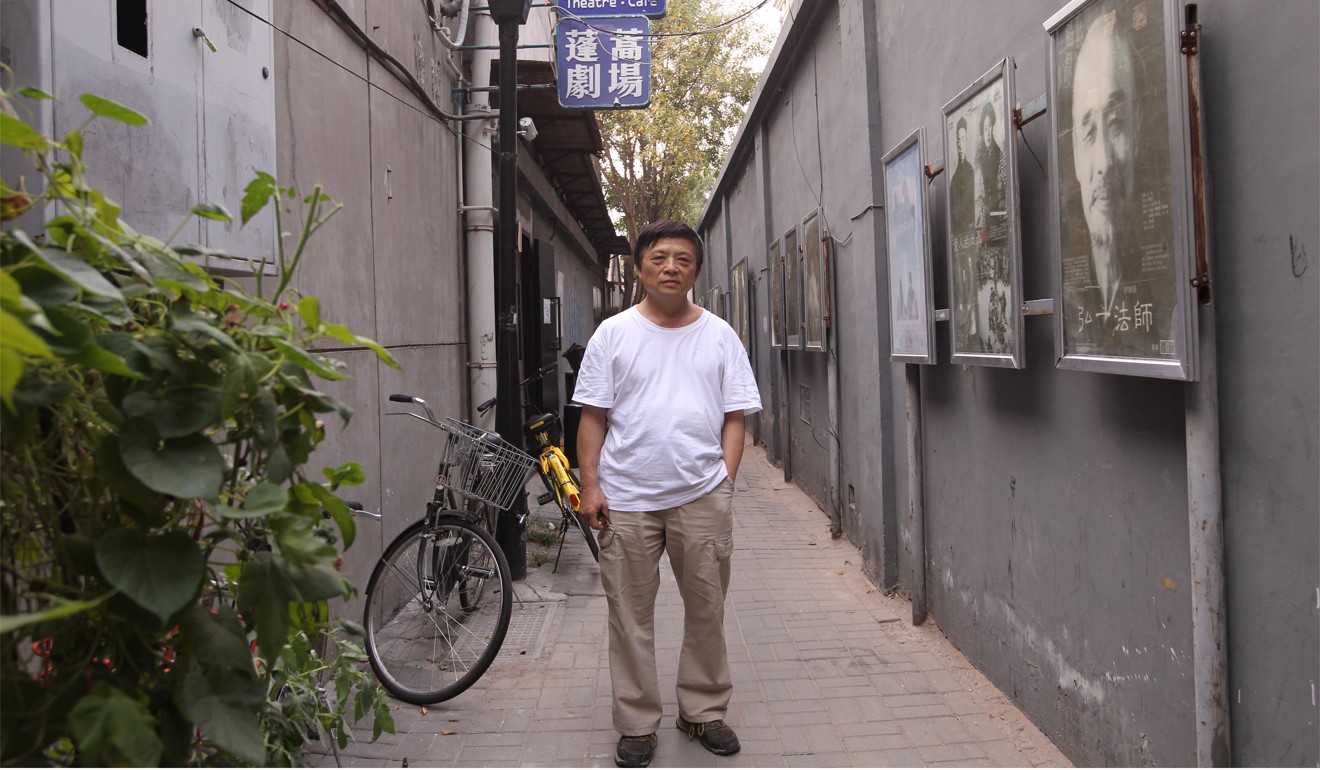
Meet the theatre owner bringing art to China’s masses, whether they like it not
Wang Xiang has sold 300,000 tickets for shows at his small theatre in Beijing, but when it comes to saving ‘deprived souls’ there is much work still to do
Just a few yards away from the elite drama school that has been a cradle for international movie stars like Zhang Ziyi and Tang Wei, China’s first independently run theatre is facing an existential crisis.
Over the past year, Wang Xiang, who founded Penghao Theatre in a Beijing alleyway in 2008, has spent far more time trying to raise money to save this unique feature of China’s contemporary art scene than he has planning programmes.
The unwanted change of focus came when the owner of the courtyard property, or siheyuan, that houses the theatre presented Wang with an ultimatum: buy him out, or move out. The asking price was a cool 40 million yuan (US$6 million).
“Penghao is among the minority of minorities in [China’s] highly commercialised and materialistic society,” Wang said. “Fundraising for art and culture is a very novel concept here.”
So too was his idea nine years ago to launch China’s first non-government, literary theatre showing both home-grown and foreign plays in a 400-square-metre century-old building. Since then, the intimate arena, which has just 100 seats, has hosted more than 3,000 performances of 600 works.
“It has totally exceeded my expectations,” Wang said. “I never thought we would see 300,000 visitors in less than a decade.”

Dressed in a white T-shirt and khaki trousers, the diminutive 63-year-old former dentist said he had no background in theatre before setting up the Penghao, but felt driven to do so.
“At that time, China’s economy was growing so rapidly that spiritual life was failing to keep up,” he said. “The boom of the market economy, coupled with a lack of democracy and social modernisation, resulted in a scarcity of imagination and aesthetics, both of which are key to culture.”
Providing a theatre, he said, was “my resistance to the deprivation of souls”.
Culture was not something that should be reserved for the elite few, he said. Indeed, the Penghao itself takes its name from an old Chinese poem that details the lives of ordinary people.
Despite having entertained thousands of people over the past nine years, Wang said that winning the support of the masses was not as easy as it might seem, even in a country of more than 1.3 billion people.
“It’s not just the censorship, which of course has an impact on everyone in the field of creative arts in China,” he said.
“What frustrates me more is capitalism and, even more, the social structure, where 90 per cent of people are fed cheap cultural products that are full of entertainment if not lies.”

Wang said that while he hoped that censorship levels would fall as society advanced, it remained the responsibility of the people to become more independent in their way of thinking.
“Chinese audiences are still at the lower end of the food chain when it comes to culture. It’s almost like an animalistic need for basic survival,” he said.
“Few people think critically and most avoid reality when problems arise.”
Opening up people’s minds is certainly something the Penghao has been keen to do. Wang said that based on his calculations, his theatre has hosted about “60 to 70 per cent” of all locally produced, Western-style theatrical productions.
A good example, he said, was when the writers of a play staged as part of the French embassy’s annual cultural event replaced all of the original references to Paris with ones that made the work more relevant to Beijing.
While supporting the development of the arts scene in China, Wang said that it had to be organic. The Penghao had collaborated with several creative art groups from Hong Kong and Taiwan, he said, but he remained opposed to the development of the West Kowloon area of Hong Kong as an arts hub.
“Art does not evolve by planning. To do so is unnatural. And from a logistical point of view, where do you find enough people to fill all the seats there?” he said.
“The question, at the end of the day, is whether such developments are for art or for some other purpose. If it’s the latter, no matter what it is, it is anti-art.”

